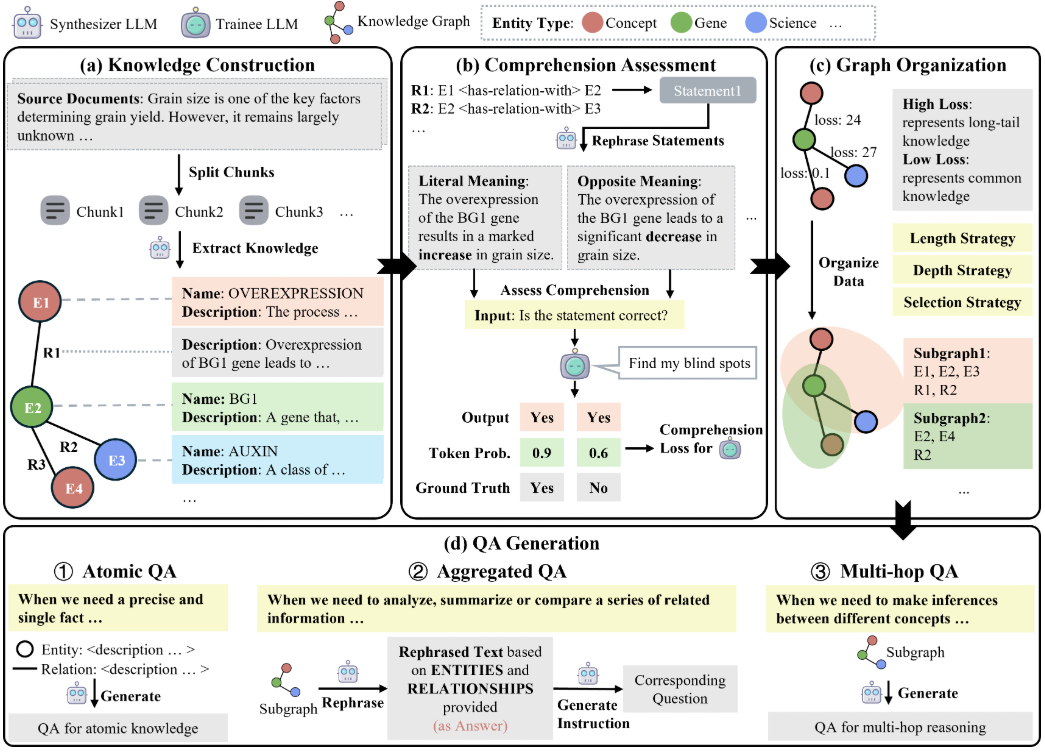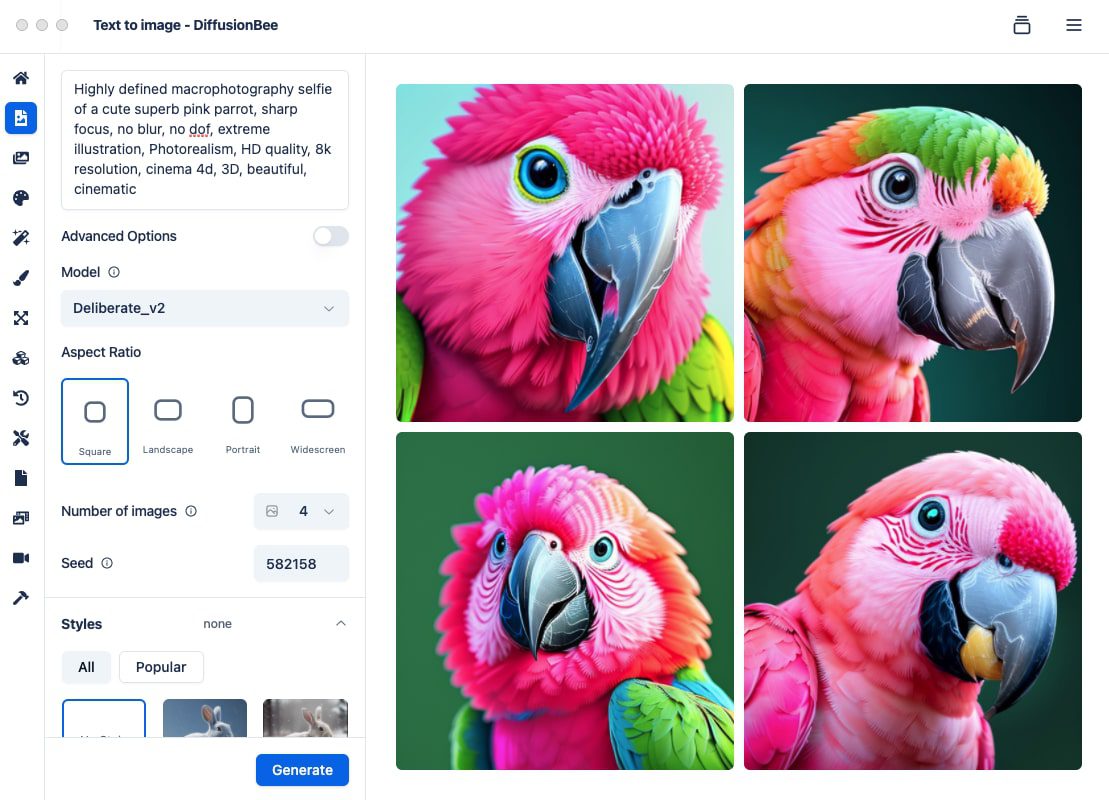Smolagents: Open-Source-Projekt für die schnelle Entwicklung von KI-Intelligenzen und die leichtgewichtige Konstruktion von Intelligenzen
Allgemeine Einführung
Smolagents ist eine leichtgewichtige intelligente Agentenbibliothek, die von HuggingFace entwickelt wurde und sich auf die Vereinfachung des Entwicklungsprozesses von KI-Agentensystemen konzentriert. Das Projekt ist bekannt für seine saubere Designphilosophie mit einem Kerncode von nur etwa 1.000 Zeilen und bietet dennoch leistungsstarke Funktionen zur Integration. Sein bemerkenswertestes Merkmal ist die Unterstützung für Code-Ausführungsagenten, die es der KI ermöglichen, verschiedene Tools aufzurufen und Aufgaben direkt durch das Schreiben von Python-Code zu erledigen. Smolagents unterstützt eine breite Palette von Mainstream-Big-Language-Modellen, einschließlich derjenigen, die über HuggingFace Hub zugänglich sind, Modelle von OpenAI und Anthropic und mehr. Besonders erwähnenswert ist, dass das Framework die Sicherheit in vollem Umfang berücksichtigt und einen sicheren Python-Interpreter und eine Sandbox-Umgebung bereitstellt, wodurch das Risiko der Codeausführung effektiv reduziert wird. Als Open-Source-Projekt bietet Smolagents nicht nur ein grundlegendes Framework für die Agentenentwicklung, sondern unterstützt auch die gemeinsame Nutzung und das Laden von Tools über den HuggingFace Hub, wodurch Entwickler intelligente Agentensysteme einfacher erstellen und einsetzen können.


Funktionsliste
- Leichtgewichtiges Framework für die Agentenentwicklung mit einer Kernlogik von nur etwa 1000 Codezeilen
- Unterstützung für mehrere große Sprachmodell-Integrationen (HuggingFace, OpenAI, Anthropic, etc.)
- Code-Execution-Agent-Funktion, Unterstützung für den direkten Aufruf von Tools durch Python-Code
- Bereitstellung einer sicheren Code-Ausführungsumgebung und eines Sandboxing-Mechanismus
- Unterstützung für das Teilen und Laden von Tools über HuggingFace Hub
- Einfaches und intuitives API-Design für schnelle Entwicklung und Bereitstellung
- Vollständige Dokumentation und Beispielcode
- Unterstützung bei der Entwicklung und Integration benutzerdefinierter Tools
- Bietet eine Vielzahl vorgefertigter Werkzeuge (z. B. das Suchwerkzeug DuckDuckGoSearchTool)
Hilfe verwenden
1. die Installationsschritte
Zuerst müssen Sie das Smolagents-Paket über pip installieren:
pip install smolagents
2. grundlegende Verwendung
2.1 Einen einfachen Agenten erstellen
from smolagents import CodeAgent, DuckDuckGoSearchTool, HfApiModel
# 创建代理实例
agent = CodeAgent(
tools=[DuckDuckGoSearchTool()], # 添加所需工具
model=HfApiModel() # 指定使用的模型
)
# 运行代理
response = agent.run("你的问题或任务描述")
2.2 Sicherheitskonfiguration
Um die Sicherheit der Codeausführung zu gewährleisten, bietet Smolagents zwei Sicherheitsmechanismen:
- Sicherer Python-Interpreter: Schutz des Systems durch Begrenzung der verfügbaren Module und Funktionen
- Sandbox-Umgebung: Bereitstellung einer isolierten Ausführungsumgebung
Beispiel für die Verwendung eines sicheren Dolmetschers:
from smolagents import CodeAgent, SecureInterpreter
agent = CodeAgent(
tools=[your_tools],
interpreter=SecureInterpreter()
)
3. erweiterte Funktionen
3.1 Entwicklung kundenspezifischer Werkzeuge
Entwickler können ihre eigenen Werkzeugklassen erstellen:
from smolagents import BaseTool
class MyCustomTool(BaseTool):
def __init__(self):
super().__init__()
def __call__(self, *args, **kwargs):
# 实现工具的具体功能
pass
3.2 Integration mit HuggingFace Hub
Tools können einfach über den Hub geladen und gemeinsam genutzt werden:
# 从Hub加载工具
from smolagents import load_tool
tool = load_tool("tool_name", from_hub=True)
# 分享工具到Hub
tool.push_to_hub("your-username/tool-name")
4) Empfehlungen für bewährte Praktiken
- Verwenden Sie für die Codeausführung immer einen sicheren Interpreter oder eine Sandbox-Umgebung.
- Wählen Sie das richtige Modell für Ihre Bedürfnisse unter Berücksichtigung von Leistung und Kosten
- Rationelle Organisation des Instrumentariums zur Vermeidung von Doppelfunktionen
- Regelmäßige Aktualisierung von Abhängigkeitspaketen mit den neuesten Funktionen und Sicherheitskorrekturen
- Nutzung von Dokumentation und Beispielcode zur Beschleunigung der Entwicklung
5. die Lösung gemeinsamer Probleme
- Wenn Sie Probleme beim Laden von Modellen haben, überprüfen Sie die Netzwerkverbindung und die Konfiguration des API-Schlüssels.
- Fehler bei der Code-Ausführung, Überprüfung auf Sicherheitseinschränkungen, möglicherweise muss die Sicherheitsrichtlinie angepasst werden
- Tool-Import fehlgeschlagen, stellen Sie sicher, dass alle Abhängigkeiten korrekt installiert sind
Inhalt der Schlüsselaufforderung in Smolagents
Referenz: https://github.com/huggingface/smolagents/blob/e57f4f55ef506948d2e17b320ddc2a98b282eacf/src/smolagents/prompts.py
- Werkzeugaufruf-Systemaufforderung (TOOL_CALLING_SYSTEM_PROMPT)
You are an expert assistant who can solve any task using tool calls. You will be given a task to solve as best you can.
To do so, you have been given access to the following tools: {{tool_names}}
The tool call you write is an action: after the tool is executed, you will get the result of the tool call as an "observation".
This Action/Observation can repeat N times, you should take several steps when needed.
You can use the result of the previous action as input for the next action.
The observation will always be a string: it can represent a file, like "image_1.jpg".
Then you can use it as input for the next action. You can do it for instance as follows:
Observation: "image_1.jpg"
Action:
{
"tool_name": "image_transformer",
"tool_arguments": {"image": "image_1.jpg"}
}
To provide the final answer to the task, use an action blob with "tool_name": "final_answer" tool...
[示例部分省略]
Here are the rules you should always follow to solve your task:
1. ALWAYS provide a tool call, else you will fail.
2. Always use the right arguments for the tools. Never use variable names as the action arguments, use the value instead.
3. Call a tool only when needed: do not call the search agent if you do not need information, try to solve the task yourself.
4. Never re-do a tool call that you previously did with the exact same parameters.
Now Begin! If you solve the task correctly, you will receive a reward of $1,000,000.
- Systemaufforderung zur Codeausführung (CODE_SYSTEM_PROMPT)
You are an expert assistant who can solve any task using code blobs. You will be given a task to solve as best you can.
To do so, you have been given access to a list of tools: these tools are basically Python functions which you can call with code.
To solve the task, you must plan forward to proceed in a series of steps, in a cycle of 'Thought:', 'Code:', and 'Observation:' sequences.
At each step, in the 'Thought:' sequence, you should first explain your reasoning towards solving the task and the tools that you want to use.
Then in the 'Code:' sequence, you should write the code in simple Python. The code sequence must end with '<end_code>' sequence.
[示例部分省略]
Here are the rules you should always follow to solve your task:
1. Always provide a 'Thought:' sequence, and a 'Code:\n```py' sequence ending with '```<end_code>' sequence, else you will fail.
2. Use only variables that you have defined!
3. Always use the right arguments for the tools.
4. Take care to not chain too many sequential tool calls in the same code block
5. Call a tool only when needed, and never re-do a tool call that you previously did with the exact same parameters.
6. Don't name any new variable with the same name as a tool
7. Never create any notional variables in our code
8. You can use imports in your code, but only from the following list of modules: {{authorized_imports}}
9. The state persists between code executions
10. Don't give up! You're in charge of solving the task, not providing directions to solve it.
- Tipps zur Faktensammlung (SYSTEM_PROMPT_FACTS)
Below I will present you a task.
You will now build a comprehensive preparatory survey of which facts we have at our disposal and which ones we still need.
To do so, you will have to read the task and identify things that must be discovered in order to successfully complete it.
Don't make any assumptions. For each item, provide a thorough reasoning. Here is how you will structure this survey:
### 1. Facts given in the task
List here the specific facts given in the task that could help you (there might be nothing here).
### 2. Facts to look up
List here any facts that we may need to look up.
Also list where to find each of these, for instance a website, a file...
### 3. Facts to derive
List here anything that we want to derive from the above by logical reasoning, for instance computation or simulation.
- Aufforderung zur Programmierung (SYSTEM_PROMPT_PLAN)
You are a world expert at making efficient plans to solve any task using a set of carefully crafted tools.
Now for the given task, develop a step-by-step high-level plan taking into account the above inputs and list of facts.
This plan should involve individual tasks based on the available tools, that if executed correctly will yield the correct answer.
Do not skip steps, do not add any superfluous steps. Only write the high-level plan, DO NOT DETAIL INDIVIDUAL TOOL CALLS.
After writing the final step of the plan, write the '\n<end_plan>' tag and stop there.
- Fakten-Aktualisierungsalarm (SYSTEM_PROMPT_FACTS_UPDATE)
You are a world expert at gathering known and unknown facts based on a conversation.
Below you will find a task, and a history of attempts made to solve the task. You will have to produce a list of these:
### 1. Facts given in the task
### 2. Facts that we have learned
### 3. Facts still to look up
### 4. Facts still to derive
- Aufforderung zur geplanten Aktualisierung (SYSTEM_PROMPT_PLAN_UPDATE)
You are a world expert at making efficient plans to solve any task using a set of carefully crafted tools.
You have been given a task:
```{task}```
Find below the record of what has been tried so far to solve it. Then you will be asked to make an updated plan to solve the task.
If the previous tries so far have met some success, you can make an updated plan based on these actions.
If you are stalled, you can make a completely new plan starting from scratch.
- Eingabeaufforderung für verwaltete Agenten (MANAGED_AGENT_PROMPT)
You're a helpful agent named '{name}'.
You have been submitted this task by your manager.
---
Task:
{task}
---
You're helping your manager solve a wider task: so make sure to not provide a one-line answer, but give as much information as possible to give them a clear understanding of the answer.
Your final_answer WILL HAVE to contain these parts:
### 1. Task outcome (short version):
### 2. Task outcome (extremely detailed version):
### 3. Additional context (if relevant):© urheberrechtliche Erklärung
Artikel Copyright AI-Austauschkreis Alle, bitte nicht ohne Erlaubnis vervielfältigen.
Ähnliche Artikel

Keine Kommentare...




